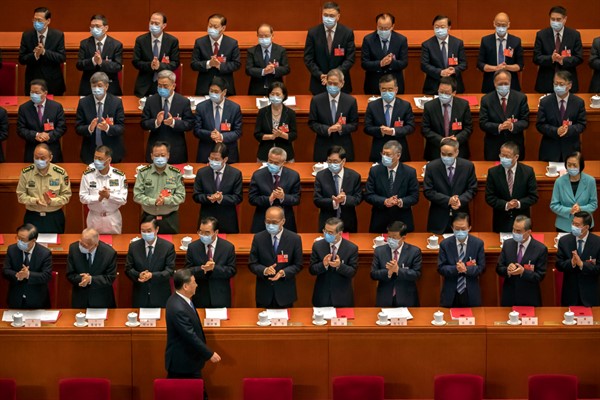In the current age of extreme political polarization, it has become a cliché to observe that the only remaining bipartisan initiatives in Congress concern the naming of post offices. But in mid-April, a major bill sailed out of a Senate Foreign Relations Committee mark-up with near-unanimous support. Sen. Rand Paul, a Republican from Kentucky, cast the lone dissenting vote against the Strategic Competition Act, which would ramp up pressure on China on a variety of fronts, including military deterrence, economic competition and human rights.
Another draft law targeting China, the Endless Frontier Act, passed the Senate Commerce Committee this week by an overwhelming 24-4 vote. It would provide more than $110 billion in new funding over five years for research into a range of advanced technologies—like artificial intelligence, robotics and high-performance computing—where many U.S. officials fear Beijing is taking the lead.
While the details could still change as they move through Congress, both bills are expected to easily pass and be signed into law. They are part of a major legislative push by Senate Majority Leader Chuck Schumer to “outcompete China”—a goal with broad backing not just on Capitol Hill, but among the American public as well. A recent opinion poll by the Pew Research Center found high levels of support for a firm approach to Beijing, with 89 percent of respondents saying they “consider China a competitor or enemy, rather than a partner.”

